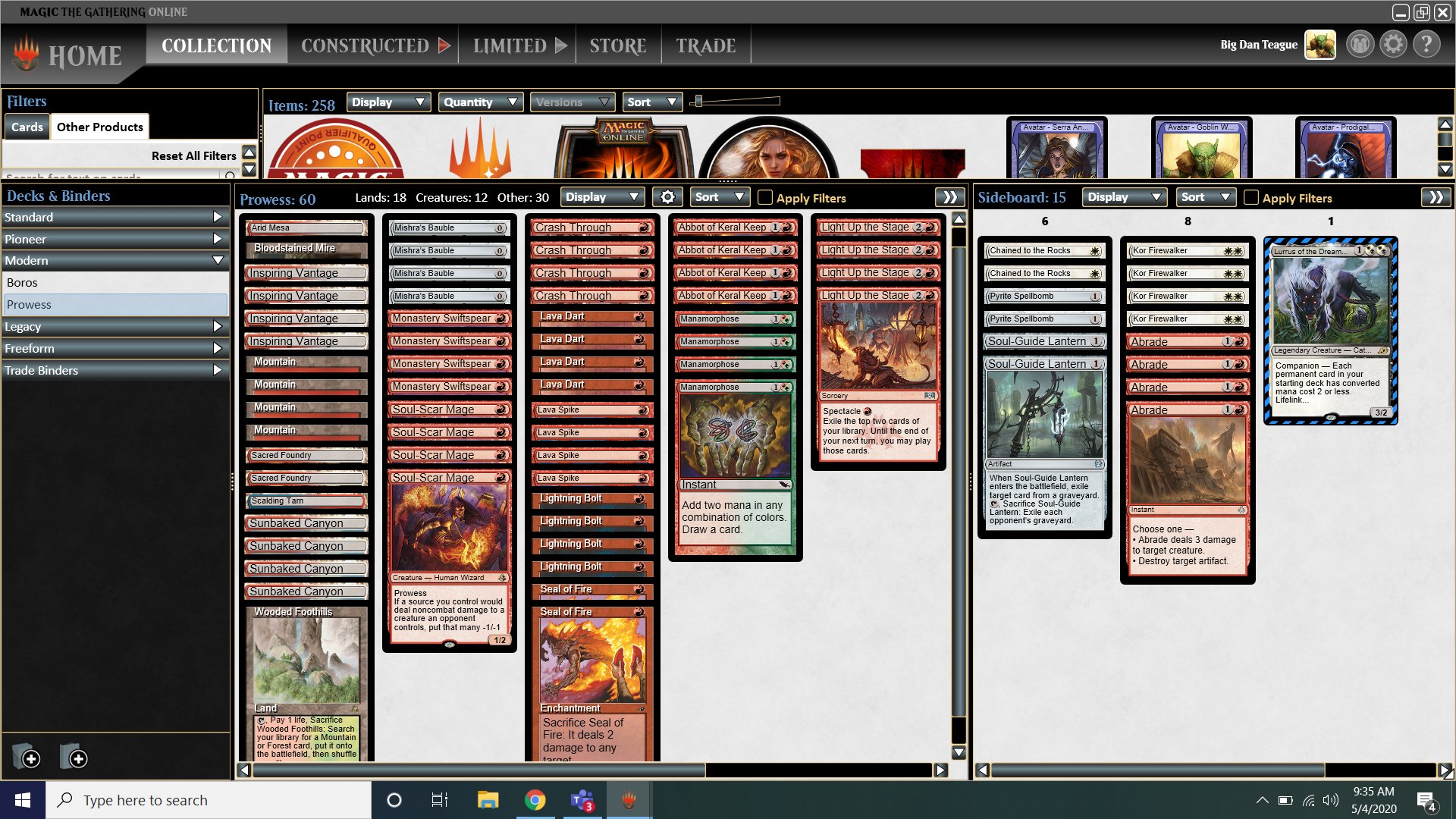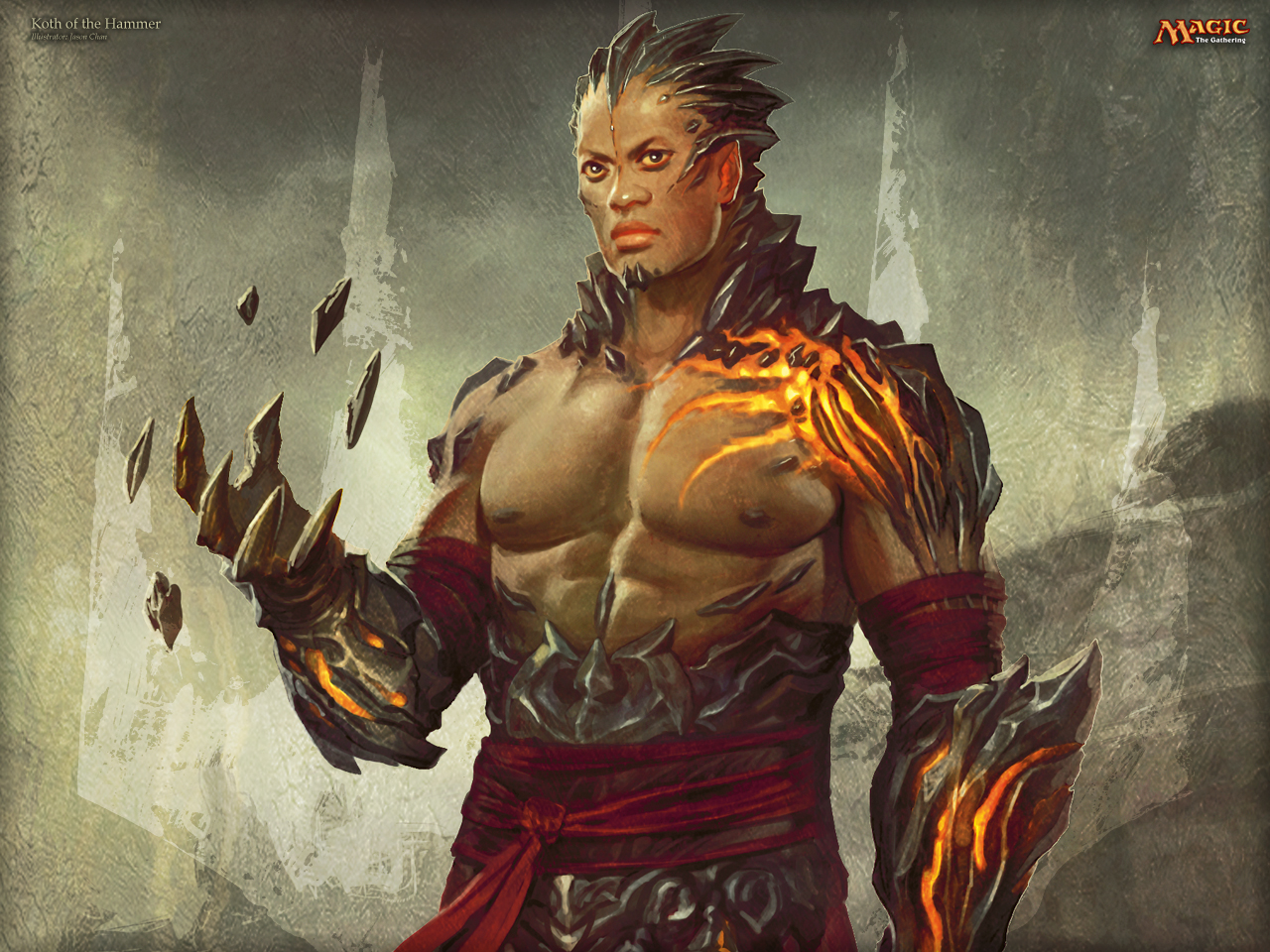Hello, and welcome to this week’s installment of Sullivan’s Satchel. I have to say I’m surprised. The $25 promotion for the “best question” started last week, but without an appreciable uptick in the questions I received.
Not anymore.
This week, my inboxes are flooded with questions from people trying to wiggle their way into this column and perhaps win the grand prize. Good on all of you; I’ve come a long way since the time when I had to make up questions to fill up my character count. That does mean that your generic “I hate all the good cards and all the bad cards, so with that said…” questions probably don’t make the cut anymore.
With that, Julien asks:
Hi!
My question is:
“Once again we see a pushed new card in Lurrus absolutely dominate and change the landscape of multiple formats. What are these immensely pushed Standard cards a symptom of, and why do you think Magic design has been shifted into this direction?”
Thanks!
-Julien H.
The starting point for this is a little strange to me. Maybe Lurrus is pushed for Standard play and maybe it isn’t, but it’s at least interesting. It’s not trivial to build your deck around its restriction, and maybe it’s better to build around Lurrus as your companion than play Mayhem Devil in your Sacrifice deck, but that’s a real cost. Compare that to my current Modern deck:

So, what’s the cost here? Abbot of Keral Keep over Bedlam Reveler? No Blood Moon in the sideboard? Barely anything. What are we flashing back with Lurrus? Zero-mana cantrips and one-mana removal, or absurd creatures, or other cantrips, whatever. This is a much less interesting experiment; as the card pool gets larger you have more options to build something functional, even powerful, around arduous-seeming restrictions, and whatever the companion is, that probably scales up with whatever you’re doing also.
There is a powerful case to ban Lurrus in multiple formats, and I don’t mean to shove that aside. But it is curious to me that so much of the analysis narrows in on that card specifically, and not, say, Mishra’s Bauble or Lion’s Eye Diamond or whatever cards are busted along with Lurrus that also happen to be busted with a bunch of other stuff as well.
To try to circle back to the original question: companions are fun. That is, you have to work around some restriction, build your deck in ways that are harder or make you play with different cards or whatever, and in exchange you get some individualized game piece to build around. That’s cool. I think the cheap ones are problematic not just on rate but because the variance reduction they present gets exponentially more pronounced the cheaper they are, for a number of reasons. They came in high, and maybe that reduces the fun in some cases. But the reason to do companions is because they’re sweet, which hasn’t always been the case for the cards WotC has decided to push.
From Billy:
Do dogs know other dogs are dogs?
I do not know offhand and did not look up the answer but I assume “yes,” because they sniff each other’s butts but not human butts, as a rule.
From Anderson LeClair (with whom I’m not especially close or anything but he once wore a Clippers Blake Griffin jersey to an SCG Tour event, which I appreciate):
Question for the mailbag: What are your top 5 favorite decks that you have ever played in an event?
Fantastic question. That’s very different from “Top 5 best decks,” since going 11-4 at a GP with Stock Whatever doesn’t get me going, even if that’s a fine finish.
5. Pro Tour New Orleans 2001. My first Pro Tour. Tested with Adam Horvath multiple hours a day for months straight iterating on “Junk,” an Abzan precursor without a single good card. Played a bunch of copies of Hunted Wumpus in a tournament that featured the debut of Reanimator. Osyp Lebedowicz somehow cobbled together a Top 16 finish that launched his professional career even after Brian Kibler put a Morphling onto the battlefield off Osyp’s Hunted Wumpus and then untapped and Ruination’ed away all of his lands.
4. PTQ sometime around 2002. Osyp broke the Extended format (something of a Modern analog for you younger kids) with a Psychatog control deck that was by far the best thing going on. Upheaval + Thwart backup came up a lot. Only tournament I’ve ever won that I felt like I didn’t catch any really lucky breaks along the way.
3. PT Houston 2002. My copy of Team TOGIT’s inexcusably bad Reanimator list was stolen 48 hours prior to departing for the tournament and I didn’t have the money to replace it, so I played in a Pro Tour with Golgari Cards In Gerard Fabiano Backpack. Essentially got to build a Sealed Deck prior to playing in an Extended Pro Tour; wish I had leaned less on Mesmeric Fiend + Pernicious Deed. Beat one person.
2. GP Columbus 2011-ish. Played Burn in Legacy in a big event for the first time. Maindecked four Kiln Fiend on the advice of Mark Herberholz. They were more “fun” than “good” but so was the rest of the deck. Resolved Vexing Shusher against Wafo-Tapa’s deck that was nothing but lands and counterspells. Cashed, somehow.
1. SCG NJ 2011-ish. Flew to NJ from California to hang out at an SCG Tour stop a few minutes from where I grew up and maybe do some commentary back when the the whole operation was less structured. Built my own deck out of the cards I had and absolutely broke it, dispatching of various SCG grinders and NYC-area teenage cheaters en route to a signature victory. Without question my favorite deck and tournament of all time.
From Brian:
My question for the grab bag. What do you think of the Ikoria limited environment? Is it healthy or is it too easy to just draft companions and win?
It is not too easy to just draft a companion and win because they are rares and several of them aren’t that powerful and/or have opportunity costs that really matter.
I’ve drafted a fair bit and I’m not particularly warm or cool on it. I guess I’m not a big believer in “Cycling 1” all over the place, and the fact that Cycling Matters feels like the best thing going on exacerbates the issue. I think the Mutate stuff is pretty fun, balanced well, and has a bunch of interesting strategic and tactical stuff baked in, and I wish more of the games were about that than drawing the same cards over and over again.
And this week’s winner, Mike Jarvis:
Hello SCG –
My question for Sullivan’s Satchel is:
Are there any lessons that MTG has taught you that you’ve been able to apply to your life outside the game, or vice versa?
Apologies if this has been asked before. Stay healthy and have a good week!
Best, Mike Jarvis
A thoughtful question plus a preemptive apology is a tough combination to beat. Nicely done Mike. A few things come to mind:
- The outcome isn’t deterministic, but that doesn’t mean doing your best doesn’t matter.
- “Results-oriented” gets thrown around a bunch and gets misapplied a lot. You need to find a middle ground between assuming “win=correct” and vice versa, while still being able to question your process through successes and defeats.
- Be kind. Be suspicious of people who are not kind, especially when it seems informed by social or economic status.
- People are successful with lots of different perspectives and processes and even if you don’t copy them exactly it is helpful to try to study why they are successful and what can be gleaned from it.
- There are not infinite slots for the top echelons of each endeavor and failing to make it there, even with effort, isn’t a failing, but it is important to remain honest with yourself about what your chances really are and what the opportunity costs are of pursuing one thing over the other thing(s).


